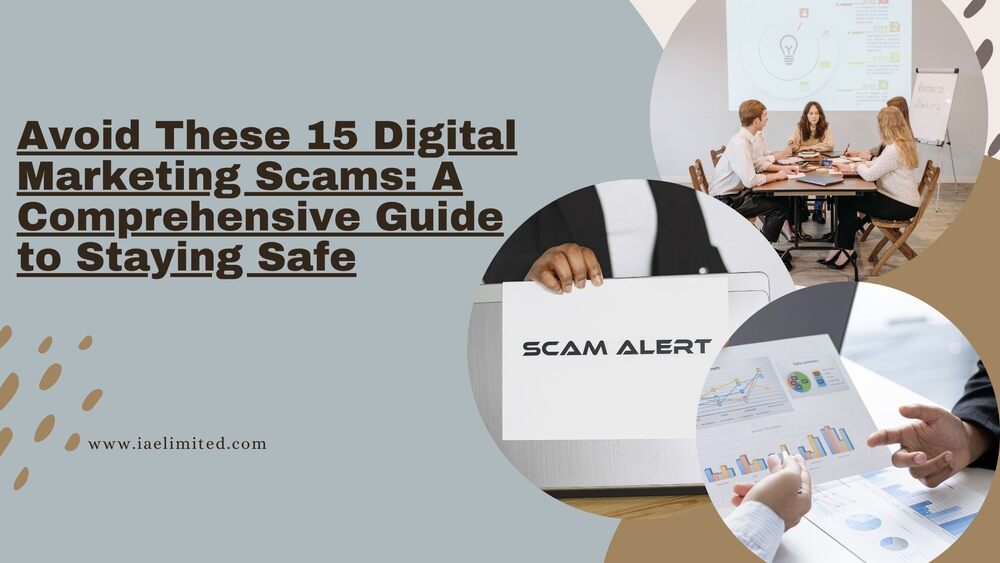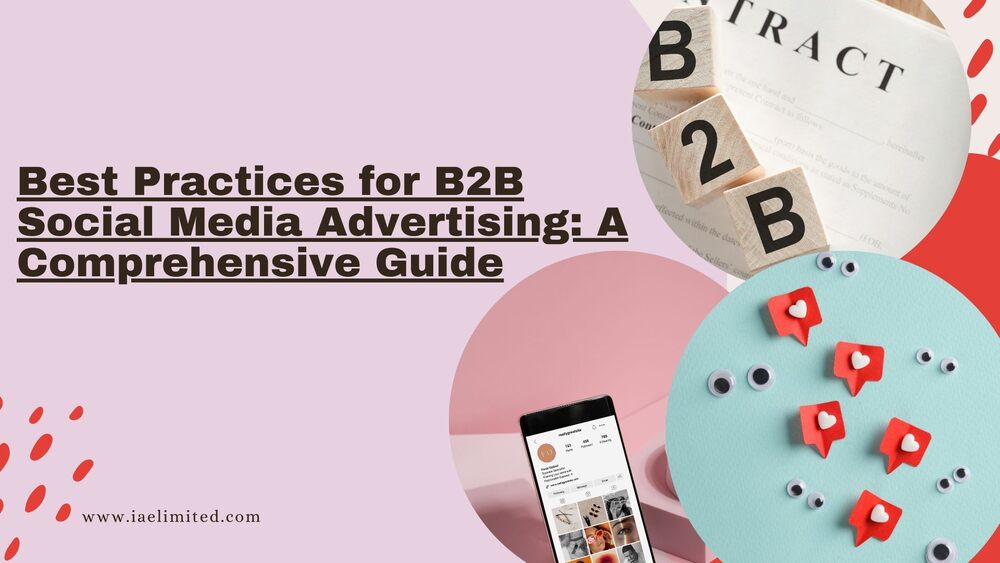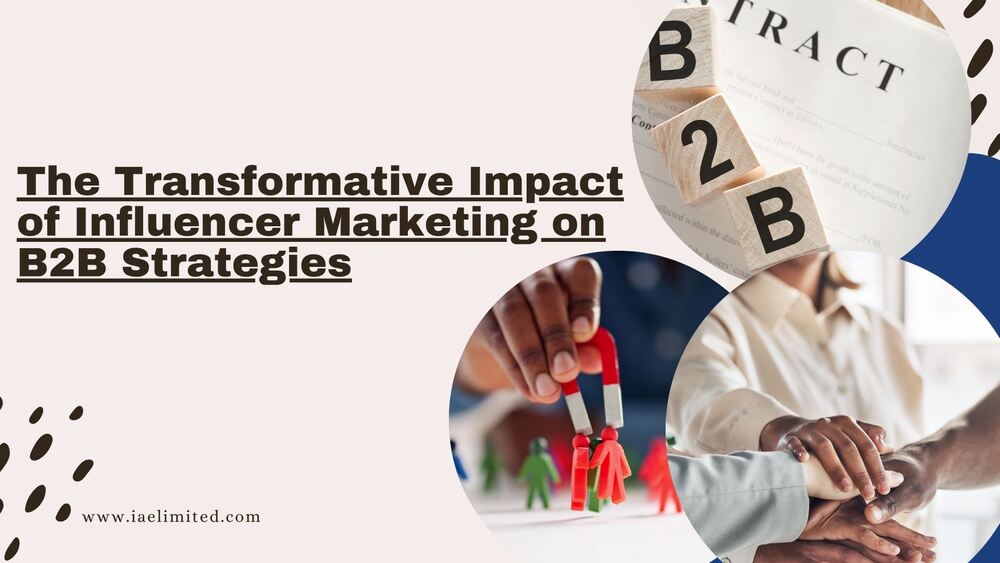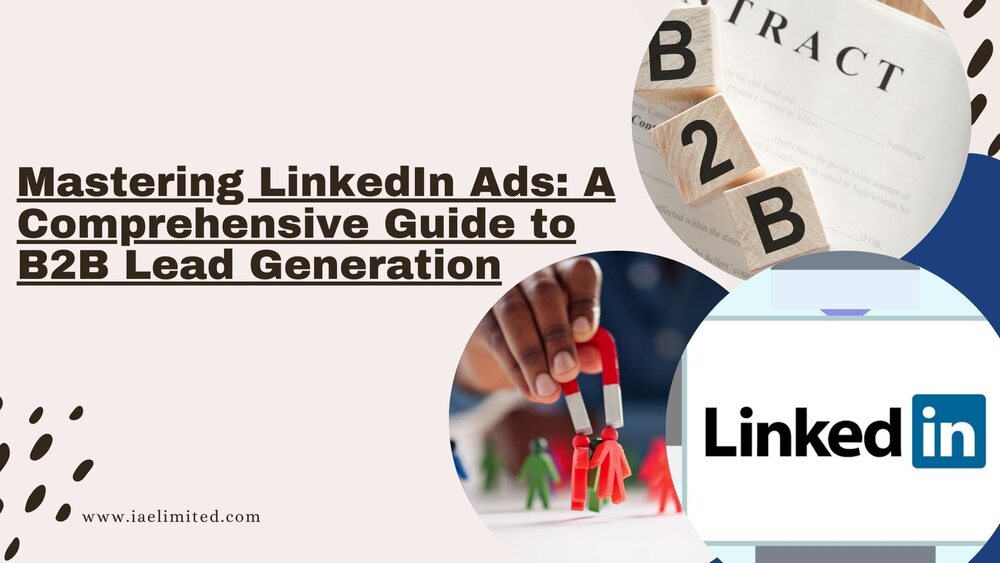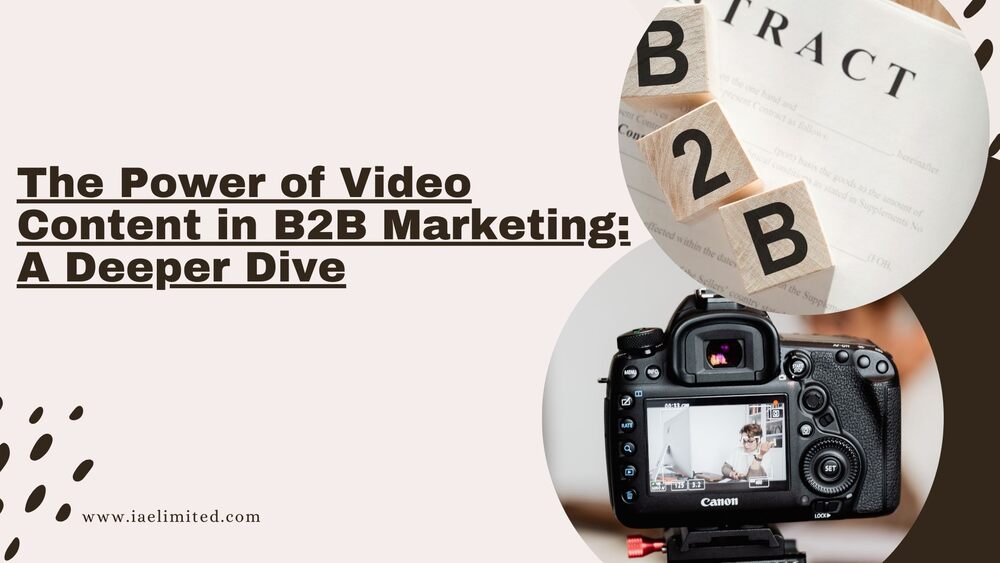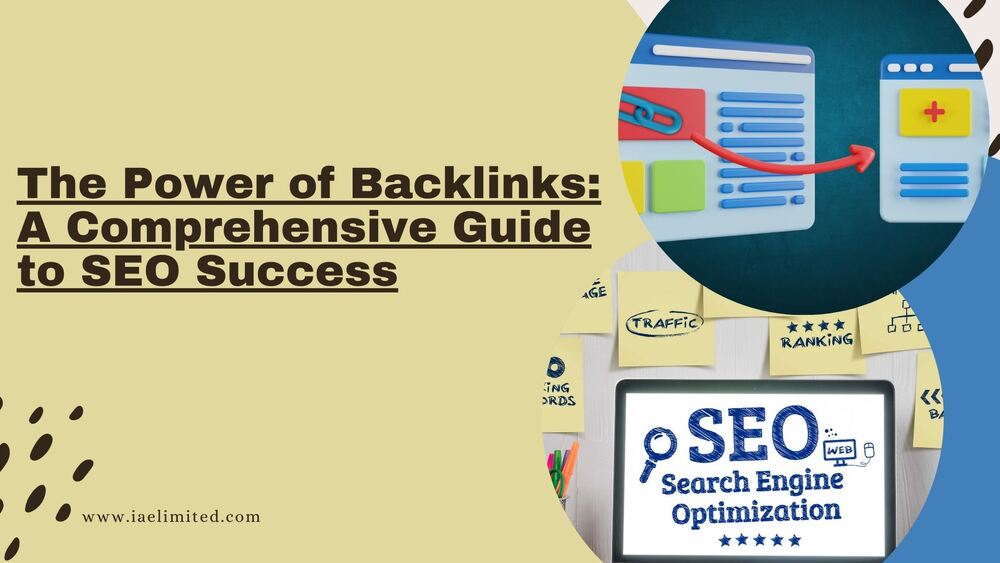What Social Media is Best for B2B Marketing? A Comprehensive Guide to Choosing the Right Platform

Introduction
Table of Contents
Overview of B2B Marketing
In the modern business landscape, Business-to-Business (B2B) marketing has evolved beyond traditional methods. Companies now rely heavily on digital platforms to connect with other businesses, showcase their products or services, and establish long-term relationships. Social media has become a crucial component of B2B marketing, providing a space for businesses to reach their target audience more effectively.
The Importance of Social Media in B2B
Social media platforms are not just for consumer-oriented businesses; they are equally important for B2B companies. These platforms enable businesses to engage with potential clients, generate leads, and build brand authority. With the right social media strategy, B2B companies can enhance their online presence and drive business growth.
Purpose of the Article: Identifying the Best Social Media Platforms for B2B
This article aims to guide B2B marketers in choosing the best social media platforms to achieve their marketing goals. By evaluating key platforms based on various criteria, businesses can make informed decisions that align with their target audience and industry.
Understanding B2B Social Media Marketing
What is B2B Social Media Marketing?
B2B social media marketing involves using social media platforms to market products or services to other businesses rather than individual consumers. The focus is on creating content that resonates with business professionals, decision-makers, and industry leaders.
Differences Between B2B and B2C Social Media Strategies
While B2C (Business-to-Consumer) marketing often emphasizes emotional appeal and immediate purchase decisions, B2B marketing is more focused on building relationships, providing value, and facilitating long-term business partnerships. The content is usually more informative and educational, targeting specific industry pain points.
Benefits of Using Social Media for B2B Marketing
- Building Brand Awareness: Social media platforms allow B2B companies to showcase their expertise, share valuable content, and increase their visibility within the industry.
- Generating Leads: By engaging with the right audience, B2B companies can attract potential clients and convert them into leads through effective social media strategies.
- Strengthening Customer Relationships: Social media provides a platform for businesses to communicate directly with their clients, address concerns, and build trust.
Criteria for Selecting the Best Social Media Platforms for B2B
Audience Demographics
Understanding where your target audience spends their time online is crucial. Platforms like LinkedIn are known for attracting professionals, while others like Instagram may have a more diverse user base.
Industry Relevance
Some platforms are better suited for specific industries. For example, LinkedIn is ideal for technology and finance sectors, while Instagram might be more effective for creative industries.
Content Types and Formats
Each platform supports different types of content. For instance, LinkedIn is great for long-form articles and professional updates, while Twitter excels in real-time updates and brief communications.
Platform Features and Tools
Evaluate the features that each platform offers, such as LinkedIn’s targeting options for B2B ads or Twitter’s hashtag campaigns, to ensure they align with your marketing goals.
Cost-Effectiveness
Consider the cost of running ads and managing content on each platform. Some platforms may offer better ROI (Return on Investment) depending on your budget and objectives.
Engagement Metrics and Analytics
Analyze the engagement metrics provided by each platform to track the performance of your content and refine your strategies accordingly.
Top Social Media Platforms for B2B Marketing
- Why LinkedIn is Ideal for B2B: LinkedIn is the top social media platform for B2B marketers due to its professional user base. It’s designed specifically for business networking, making it easier to connect with decision-makers and industry leaders.
- Key Features for B2B Marketers: LinkedIn offers features like LinkedIn Ads, InMail, and company pages, all of which are tailored to B2B marketing needs.
- Successful B2B Case Studies on LinkedIn: Many B2B companies have successfully used LinkedIn to generate leads, such as HubSpot, which leveraged LinkedIn’s targeting tools to reach the right audience.
- Twitter for Thought Leadership and Industry News: Twitter is an excellent platform for sharing industry news, insights, and thought leadership content. It allows B2B companies to stay current and engage in industry-specific conversations.
- How to Use Twitter for B2B Marketing: Use hashtags to join relevant discussions, share content consistently, and engage with followers to build a strong online presence.
- Examples of Effective B2B Twitter Campaigns: Companies like IBM use Twitter to share industry insights and participate in relevant conversations, helping to position themselves as industry leaders.
- The Role of Facebook in B2B Marketing: Facebook may not be the first platform that comes to mind for B2B, but it can be effective for reaching a broad audience and building brand awareness.
- Leveraging Facebook Groups for B2B Networking: Facebook Groups offer a space for professionals to connect, share knowledge, and discuss industry trends. Participating in or creating a group can help B2B companies establish themselves as thought leaders.
- Case Studies: B2B Success on Facebook: An example is Salesforce, which uses Facebook to share customer success stories and industry news, helping to engage its community.
- Visual Storytelling for B2B on Instagram: While Instagram is known for its visual content, B2B companies can use it to showcase behind-the-scenes content, product features, and company culture.
- How B2B Brands Use Instagram Effectively: Brands like General Electric use Instagram to humanize their brand by sharing employee stories and innovation highlights.
- Examples of B2B Instagram Strategies: Cisco uses Instagram to share visual content that highlights their technology and innovation, making complex concepts more accessible.
YouTube
- Video Content in B2B Marketing: YouTube is a powerful platform for B2B companies to share educational content, product demonstrations, and customer testimonials.
- Best Practices for B2B YouTube Channels: Create content that addresses common customer pain points, offers solutions, and showcases the benefits of your products or services.
- Success Stories: B2B Brands on YouTube: Microsoft uses YouTube to share tutorials and customer success stories, helping to educate and engage their audience.
- Niche B2B Marketing on Pinterest: Pinterest may seem unconventional for B2B, but it can be effective for industries like design, architecture, and manufacturing.
- Utilizing Pinterest for B2B Content Sharing: B2B companies can use Pinterest to share infographics, whitepapers, and product images that drive traffic to their website.
- Case Studies of B2B Pinterest Campaigns: IBM uses Pinterest to share visual content related to their cloud computing services, helping to reach a broader audience.
Emerging Platforms (e.g., TikTok, Threads)
- Exploring New Opportunities for B2B: Emerging platforms like TikTok offer new opportunities for B2B marketing, particularly in reaching younger demographics and experimenting with creative content.
- Potential Benefits and Challenges: While these platforms may not be the first choice for B2B, they offer the potential to engage a new audience and experiment with different content formats.
How to Develop a B2B Social Media Strategy
A. Setting Clear Goals and Objectives
Define what you want to achieve with your social media efforts, whether it’s brand awareness, lead generation, or customer engagement.
B. Identifying Target Audiences
Understand who your target audience is, where they spend their time online, and what content resonates with them.
C. Content Planning and Creation
Develop a content calendar that aligns with your goals and audience preferences. Focus on creating high-quality, informative content that adds value.
D. Posting Schedules and Frequency
Consistency is key. Determine the optimal posting frequency for each platform to maintain engagement without overwhelming your audience.
E. Engaging with Your Audience
Engage with your audience by responding to comments, participating in discussions, and sharing user-generated content.
F. Measuring Success and ROI
Use platform analytics to track the performance of your content and campaigns. Adjust your strategy based on what works best for your audience.
Case Studies of Successful B2B Social Media Campaigns
A. LinkedIn Success Stories
Companies like Adobe have used LinkedIn to drive significant lead generation by targeting specific industries and job roles with tailored content.
B. Twitter Case Studies
Oracle uses Twitter to share real-time updates, industry news, and thought leadership content, effectively engaging their audience and establishing their expertise.
C. Facebook B2B Campaigns
HubSpot uses Facebook to share valuable content, such as blog posts and webinars, helping to nurture leads and build a community around their brand.
D. Instagram B2B Marketing Success
Intel uses Instagram to highlight their innovations and company culture, creating a strong brand identity that resonates with their audience.
E. You
Tube Case Studies
Cisco’s YouTube channel is a prime example of how B2B companies can use video content to educate their audience and showcase their products in action.
F. Pinterest B2B Campaign Success
Moo uses Pinterest to share visual content related to their printing services, driving traffic to their website and increasing brand awareness.
Common Mistakes to Avoid in B2B Social Media Marketing
A. Ignoring the Importance of Analytics
Failing to monitor and analyze your social media performance can result in missed opportunities to optimize your strategy and improve ROI.
B. Not Tailoring Content for Each Platform
Different platforms have different audiences and content expectations. Tailor your content to suit the platform’s strengths and user preferences.
C. Overlooking Audience Engagement
Simply posting content is not enough. Engaging with your audience by responding to comments and messages is crucial for building relationships.
D. Focusing Solely on Lead Generation
While generating leads is important, social media should also be used for brand building and nurturing relationships with existing clients.
Frequently Asked Questions (FAQs)
A. Which Social Media Platform is Best for B2B Marketing?
LinkedIn is generally considered the best platform for B2B marketing due to its professional user base and features tailored to business networking.
B. How Can Small Businesses Leverage Social Media for B2B?
Small businesses can use social media to build brand awareness, connect with potential clients, and establish themselves as thought leaders in their industry.
C. What Type of Content Works Best for B2B on Social Media?
Informative and educational content, such as blog posts, case studies, whitepapers, and videos, works best for B2B audiences.
D. How Do You Measure the Success of B2B Social Media Campaigns?
Success can be measured by tracking engagement metrics, lead generation, and conversions using platform analytics and tools like Google Analytics.
E. Can Emerging Platforms Like TikTok Be Effective for B2B?
While TikTok is more commonly used for B2C marketing, it can be effective for B2B by creating engaging and creative content that resonates with younger audiences.
In Conclusion
In case you missed it, we recently published a post on, Overview of the 4 Types of B2B Marketing. This content will walk you through the 4 types of B2B marketing.

A. Recap of Key Points
Choosing the right social media platform for B2B marketing depends on your target audience, industry, and marketing goals. LinkedIn, Twitter, Facebook, Instagram, YouTube, and Pinterest each offer unique benefits for B2B companies.
B. Final Thoughts on Choosing the Best Social Media for B2B
There is no one-size-fits-all approach to B2B social media marketing. It’s important to experiment with different platforms and strategies to find what works best for your business.
C. Encouragement to Experiment and Adapt Strategies
Social media is constantly evolving, and so should your strategies. Stay up-to-date with platform changes and trends, and be willing to adapt your approach as needed to achieve the best results.
By following these guidelines and choosing the right social media platforms, B2B companies can effectively reach their target audience, build relationships, and achieve their marketing goals.
